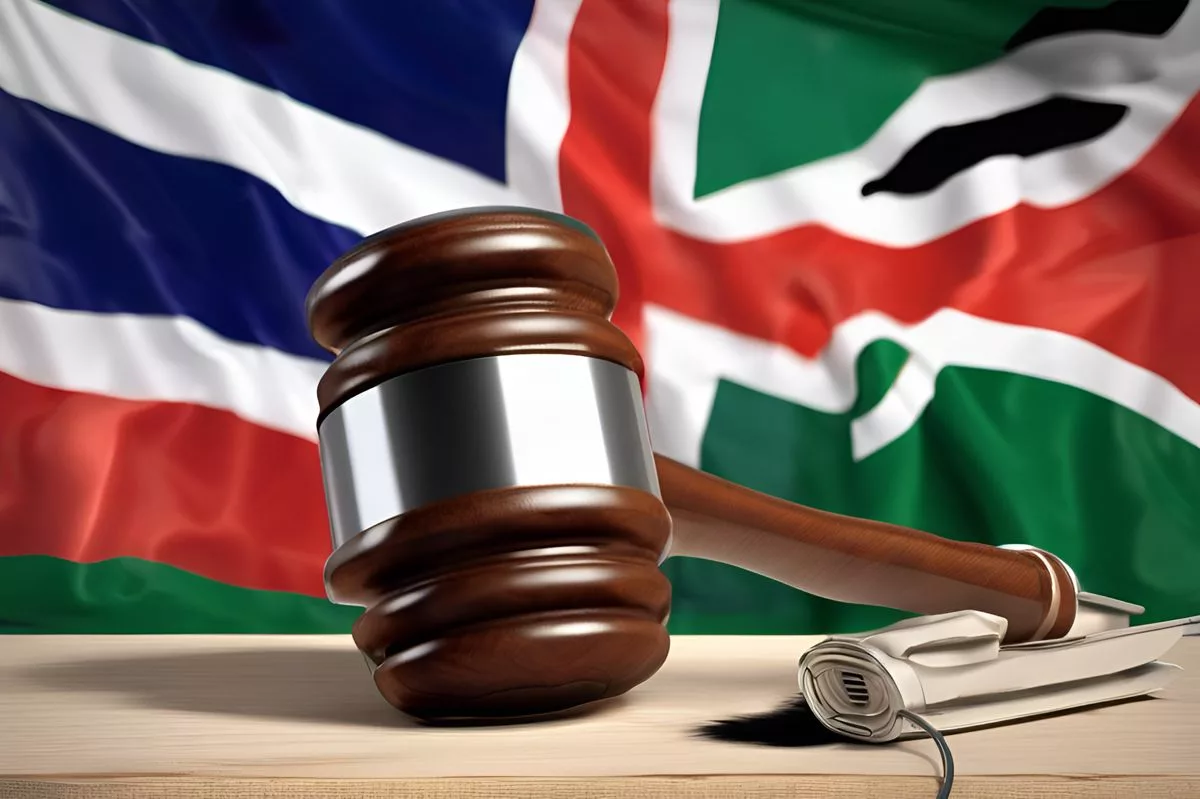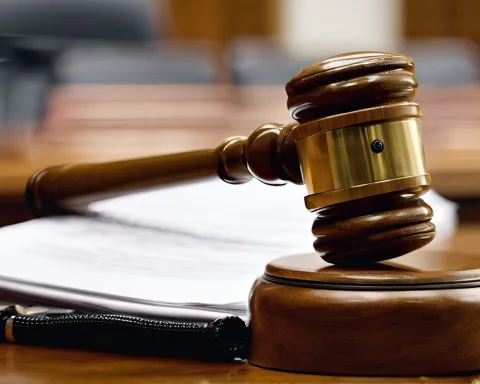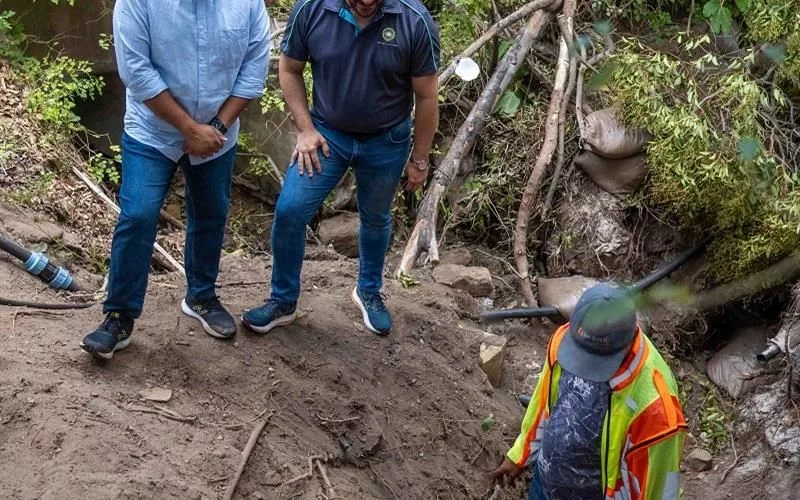The Showmax documentary “Unraveling Thabo Bester” has caused legal disputes over the right to fair trial. Thabo Bester and Nandipha Magudumana tried to stop the documentary from being broadcast, arguing that it could affect their right to a fair trial. However, the Johannesburg High Court ruled in Showmax’s favor, stating that the documentary’s release would not interfere with the fairness of their trials. The documentary has sparked public interest and legal discussions about crime, justice, and media’s role in shaping public opinion.
Legal Disputes Sparked by a Showmax Documentary
The recent Showmax documentary, “Unraveling Thabo Bester,” has sparked legal debates over the right to a fair trial. Thabo Bester and Nandipha Magudumana sought to prevent the documentary’s broadcast, arguing it could potentially compromise their right to a fair trial. However, Johannesburg High Court Judge Stuart Wilson ruled in Showmax’s favor, stating that the documentary’s broadcast would not interfere with the fairness of their trials.
Legal Disputes Sparked by a Showmax Documentary
The recent Showmax documentary, “Unraveling Thabo Bester,” has stirred up a storm of legal debates in a society engrossed in true crime stories. The lawsuit essentially hinged on the concept of the right to a fair trial. Thabo Bester, a convicted sexual offender, and Nandipha Magudumana, a prisoner awaiting trial, sought to prevent the documentary’s broadcasting in a surprising turn of events.
In a last-minute legal strategy, Bester and Magudumana hurried to court, voicing concerns about their right to a fair trial. Their argument bypassed typical worries about defamation or privacy intrusion. Instead, they argued the documentary could potentially compromise their right to a fair trial. They primarily objected to the documentary being aired prior to the completion of their trials.
A Clash of Arguments in the Courtroom
The heart of Magudumana’s argument was that the documentary’s release could tip the scales of her trial if it were to be broadcast before the completion of her trial. She was not inherently opposed to the documentary being broadcast but was concerned about the timing. She requested a court order to compel Showmax to supply her with the documentary so she could review it 30 days in advance and take any necessary legal actions.
Contrarily, Bester endeavored to halt the documentary until he had a fair chance to provide his perspective on his life and relationships and how they were portrayed in the documentary. Bester contended that it was unjust for him to battle a legal and public trial concurrently, especially as the sources for the documentary would provide evidence in the ongoing trial.
Countering these arguments, Multichoice General Counsel Steven Budlender contended that the documentary didn’t expose any new details. Instead, it creatively organized pre-existing information into a four-part series. He underscored that the documentary simply brought attention to infamous facts already known to the public.
Showmax Triumphs in Court
The legal dual reached a boiling point when Johannesburg High Court Judge Stuart Wilson ruled in Showmax’s favor. In his judgement, Judge Wilson noted that neither Bester nor Magudumana had proven that the documentary’s broadcast would interfere with the fairness of their trials. He dismissed their apprehensions as ‘generalized worry’ and stated that each party would bear its own legal costs.
This case was influenced by the precedent set in the NPA’s case against eTV about a documentary on the Dina Rodrigues prosecution. This precedent stated that any pre-publication injunction must prove that the publication would inflict significant damage to the justice system’s administration, and the threat was tangible.
In a twist of poetic justice, Judge Wilson eloquently expressed that regardless of one’s behavior or reputation, the courtroom doors are open to all. This comment served as a stark illustration of the inherent democratic principles upheld by the justice system. It highlighted the fact that even those accused or convicted of horrific crimes have the same legal rights and protections as everyone else.
The Documentary’s Impact
Following the rejection of the applications, “Unraveling Thabo Bester” proceeded with its broadcast starting from 15th March. The first two episodes were broadcast on Showmax’s digital platform, providing a bone-chilling glimpse into Bester’s life and crimes. As the four-part series continues to evolve, it is sure to continue sparking public interest and legal discussions about crime, justice, and the role of media in shaping public opinion.
What is the Showmax documentary “Unraveling Thabo Bester”?
“Unraveling Thabo Bester” is a documentary produced by Showmax that explores the crimes and life of convicted sexual offender Thabo Bester.
What legal disputes have been sparked by the documentary?
Thabo Bester and Nandipha Magudumana tried to stop the documentary’s broadcast, arguing that it could affect their right to a fair trial. However, the Johannesburg High Court ruled in Showmax’s favor, stating that the documentary’s release would not interfere with the fairness of their trials.
What was Magudumana’s argument in court?
Magudumana argued that the documentary’s release could potentially tip the scales of her trial if it were to be broadcast before the completion of her trial. She requested a court order to compel Showmax to supply her with the documentary so she could review it 30 days in advance and take any necessary legal actions.
What was Bester’s argument in court?
Bester endeavored to halt the documentary until he had a fair chance to provide his perspective on his life and relationships and how they were portrayed in the documentary. He contended that it was unjust for him to battle a legal and public trial concurrently, especially as the sources for the documentary would provide evidence in the ongoing trial.
Who won the legal battle?
Johannesburg High Court Judge Stuart Wilson ruled in Showmax’s favor, stating that neither Bester nor Magudumana had proven that the documentary’s broadcast would interfere with the fairness of their trials. He dismissed their apprehensions as ‘generalized worry’ and stated that each party would bear its own legal costs.
What impact has the documentary had?
The documentary has sparked public interest and legal discussions about crime, justice, and the role of media in shaping public opinion. The first two episodes were broadcast on Showmax’s digital platform, and as the four-part series continues to evolve, it is sure to continue generating conversations and debates.












